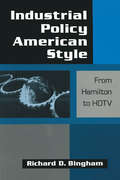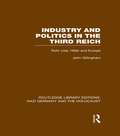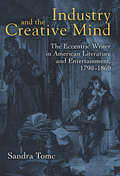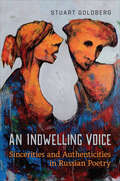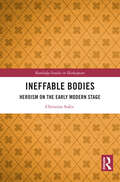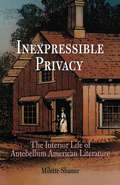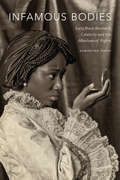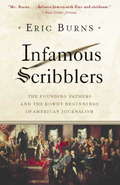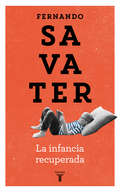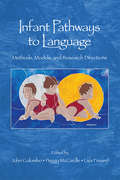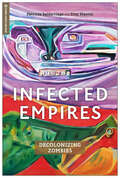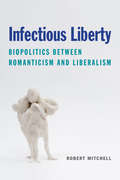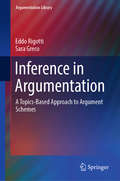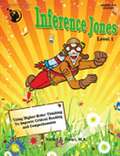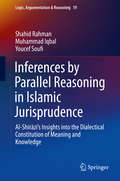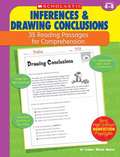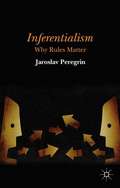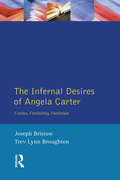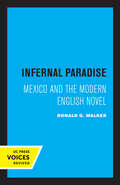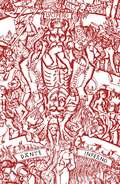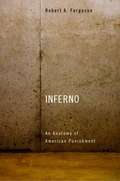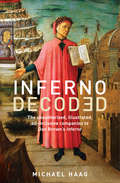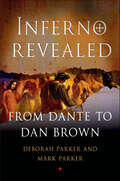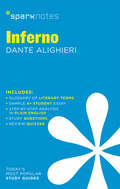- Table View
- List View
Industrial Policy American-style: From Hamilton to HDTV
by Richard D. BinghamThe proper role of government in the US economy has long been the subject of ideological dispute. This study of industrial policy as practised by administration after administration, explores the variations from a hands-off approach to protectionist policies and aggressive support for businesses.
Industry and Politics in the Third Reich: Ruhr Coal, Hitler and Europe (Routledge Library Editions: Nazi Germany and the Holocaust)
by John GillinghamWhen originally published in 1985 this was the first detailed study of business in Nazi Germany. Drawing on a wealth of new evidence from government and private archives, the book throws light on the important role played by Germany heavy industry in preserving traditions valuable for the post-Nazi future. Contrary to widely held beliefs, the industrialists of the Ruhr did not master-mind the economic strategy of the third Reich, nor were they the helpless victims of Hitler’s tyranny. In this penetrating study, the author reveals that while the management of the coal industry in the Ruhr certainly cooperated with Hitler, they did so only to the extent that it served their own purposes, which were far less destructive than those of the regime.
Industry and the Creative Mind: The Eccentric Writer in American Literature and Entertainment, 1790-1860
by Sandra TomcIndustry and the Creative Mind takes a radically new look at the figure of the eccentric, alienated writer in American literature and entertainment from 1790 to 1860. Traditional scholarship takes for granted that the eccentric writer, modeled by such Romantic beings as Lord Byron and brought to life for American audiences by the gloomy person of Edgar Allan Poe, was a figure of rebellion against the excesses of modern commercial culture and industrial life. By contrast,Industry and the Creative Mind argues that in the United States myths of writerly moodiness, alienation, and irresponsibility predated the development of a commercial arts and entertainment industry and instead of forming a site of rebellion from this industry formed a bedrock for its development. Looking at the careers of a number of early American writers---Joseph Dennie, Nathaniel Parker Willis, Edgar Allan Poe, Fanny Fern, as well as a host of now forgotten souls who peopled the twilight worlds of hack fiction and industrial literature---this book traces the way in which early nineteenth-century American arts and entertainment systems incorporated writerly eccentricity in their "logical" economic workings, placing the mad, rebellious writer at the center of the industry's productivity and success.
An Indwelling Voice: Sincerities and Authenticities in Russian Poetry
by Stuart GoldbergHow have poets in recent centuries been able to inscribe recognizable and relatively sincere voices despite the wearing of poetic language and reader awareness of sincerity’s pitfalls? How are readers able to recognize sincerity at all given the mutability of sincere voices and the unavailability of inner worlds? What do disagreements about the sincerity of texts and authors tell us about competing conceptualizations of sincerity? And how has sincere expression in one particular, illustrative context – Russian poetry – both changed and remained constant? An Indwelling Voice grapples, uniquely, with such questions. In case studies ranging from the late neoclassical period to post-postmodernism, it explores how Russian poets have generated the pragmatic framings and poetic devices that allow them to inscribe sincere voices in their poetry. Engaging Anglo-American and European literature, as well as providing close readings of Russian poetry, An Indwelling Voice helps us understand how poets have at times generated a powerful sense of presence, intimating that they speak through the poem.
Ineffable Bodies: Heroism on the Early Modern Stage (Routledge Studies in Shakespeare)
by Christine SukicIneffable Bodies focuses on early modern heroism in drama through the notion of ineffability in order to define new dramatic forms. Drawing from Vladimir Jankélévitch’s studies on the ineffable, the book focuses on heroic bodies on the early modern stage as the seat of an aesthetic shift in drama: the early modern heroic body testifies to an inability to tell heroic stories. Examples are taken from plays by Shakespeare, Chapman and Daniel in which martial heroes are placed in a position where they cannot give full sway to their heroic status or are simply revealed as failed heroes. The playwrights experiment with action and favour forms that have lost their meaning or contents, stressing the mutation from the factual or the material to the immaterial and the ineffable.
Inexpressible Privacy
by Milette ShamirSelected by Choice magazine as an Outstanding Academic Title for 2006Few concepts are more widely discussed or more passionately invoked in American public culture than that of privacy. What these discussions have lacked, however, is a historically informed sense of privacy's genealogy in U.S. culture. Now, Milette Shamir traces this peculiarly American obsession back to the middle decades of the nineteenth century, when our modern understanding of privacy took hold.Shamir explores how various discourses, as well as changes in the built environment, worked in tandem to seal, regulate, and sanctify private spaces, both domestic and subjective. She offers revelatory readings of texts by Nathaniel Hawthorne, Frederick Douglass, Herman Melville, Harriet Beecher Stowe, Henry David Thoreau, and other, less familiar antebellum writers and looks to a wide array of sources, including architectural blueprints for private homes, legal cases in which a "right to privacy" supplements and exceeds property rights, examples of political rhetoric vaunting the sacred inviolability of personal privacy, and conduct manuals prescribing new codes of behavior to protect against intrusion.
Infamous Bodies: Early Black Women’s Celebrity and the Afterlives of Rights
by Samantha PintoThe countless retellings and reimaginings of the private and public lives of Phillis Wheatley, Sally Hemings, Sarah Baartman, Mary Seacole, and Sarah Forbes Bonetta have transformed them into difficult cultural and black feminist icons. In Infamous Bodies, Samantha Pinto explores how histories of these black women and their ongoing fame generate new ways of imagining black feminist futures. Drawing on a variety of media, cultural, legal, and critical sources, Pinto shows how the narratives surrounding these eighteenth- and nineteenth-century celebrities shape key political concepts such as freedom, consent, contract, citizenship, and sovereignty. Whether analyzing Wheatley's fame in relation to conceptions of race and freedom, notions of consent in Hemings's relationship with Thomas Jefferson, or Baartman's ability to enter into legal contracts, Pinto reveals the centrality of race, gender, and sexuality in the formation of political rights. In so doing, she contends that feminist theories of black women's vulnerable embodiment can be the starting point for future progressive political projects.
Infamous Scribblers: The Founding Fathers and the Rowdy Beginnings of American Journalism
by Eric BurnsInfamous Scribblers is a perceptive and witty exploration of the most volatile period in the history of the American press. News correspondent and renonwned media historian Eric Burns tells of Ben Franklin, Alexander Hamilton and Sam Adams-the leading journalists among the Founding Fathers; of George Washington and John Adams, the leading disdainers of journalists; and Thomas Jefferson, the leading manipulator of journalists. These men and the writers who abused and praised them in print (there was, at the time, no job description of "journalist") included the incendiary James Franklin, Ben's brother and one of the first muckrakers; the high minded Thomas Paine; the hatchet man James Callender, and a rebellious crowd of propagandists, pamphleteers, and publishers. It was Washington who gave this book its title. He once wrote of his dismay at being "buffited in the public prints by a set of infamous scribblers. " The journalism of the era was often partisan, fabricated, overheated, scandalous, sensationalistic and sometimes stirring, brilliant, and indispensable. Despite its flaws-even because of some of them-the participants hashed out publicly the issues that would lead America to declare its independence and, after the war, to determine what sort of nation it would be.
La infancia recuperada
by Fernando Savater«Este es un libro sobre libros: un libro sobre el amor a los libros y sobre la fuerza absorta de leer.»Fernando Savater La infancia recuperada es un conjuro literario para evocar la huella gozosa dejada en la memoria del escritor por los relatos que animaron su adolescencia y primera juventud. Un proyecto que Fernando Savater continuaría desarrollando más adelante en Criaturas del aire. Porque las hermosas historias inventadas por Robert L. Stevenson, Julio Verne, Zane Grey, Jack London, H.G. Wells, Karl May y Conan Doyle, las heroicas hazañas de Sandokan o las divertidas aventuras de Guillermo Brown forman parte de un universo mítico situado por encima de las modas y de las edades. En el prólogo que escribiera en su día para la edición de bolsillo (aparecida diez años después de su publicación original), Fernando Savater explica los motivos que le impulsaron a escribir esta obra «sobre el amor a los libros y sobre la fuerza absorta de leer» y aclara algunos malentendidos en torno a sus propósitos. «Es descabellado suponer que mientras haya gente afectada por esta maldición del ansia insaciable de cuentos, incapaces de considerar la sabiduría o el amor fuera del prisma de lo narrativo, inútiles para otra perspectiva de la acción que no sea el punto de vista del héroe, es descabellado suponer que mientras haya enfermos incurables del mito, como lo soy yo, las historias perdurarán aunque se hunda la literatura y la cultura toda que conocemos?»Fernando Savater
La infancia recuperada
by Fernando Savater«Este es un libro sobre libros: un libro sobre el amor a los libros y sobre la fuerza absorta de leer.»Fernando Savater La infancia recuperada es un conjuro literario para evocar la huella gozosa dejada en la memoria del escritor por los relatos que animaron su adolescencia y primera juventud. Un proyecto que Fernando Savater continuaría desarrollando más adelante en Criaturas del aire. Porque las hermosas historias inventadas por Robert L. Stevenson, Julio Verne, Zane Grey, Jack London, H.G. Wells, Karl May y Conan Doyle, las heroicas hazañas de Sandokan o las divertidas aventuras de Guillermo Brown forman parte de un universo mítico situado por encima de las modas y de las edades. En el prólogo que escribiera en su día para la edición de bolsillo (aparecida diez años después de su publicación original), Fernando Savater explica los motivos que le impulsaron a escribir esta obra «sobre el amor a los libros y sobre la fuerza absorta de leer» y aclara algunos malentendidos en torno a sus propósitos. «Es descabellado suponer que mientras haya gente afectada por esta maldición del ansia insaciable de cuentos, incapaces de considerar la sabiduría o el amor fuera del prisma de lo narrativo, inútiles para otra perspectiva de la acción que no sea el punto de vista del héroe, es descabellado suponer que mientras haya enfermos incurables del mito, como lo soy yo, las historias perdurarán aunque se hunda la literatura y la cultura toda que conocemos?»Fernando Savater
Infant Pathways to Language: Methods, Models, and Research Directions
by John Colombo Peggy McCardle Lisa FreundThe recent progress in cognitive neuroscience, and the importance of genetic factors and gene-environment interactions in shaping behavioral functions in early childhood, have both underscored the primacy of early experience and development on brain development and function.The contributors to this volume discuss different paradigms and approaches
Infected Empires: Decolonizing Zombies (Global Media and Race)
by Patricia Saldarriaga Emy ManiniGiven the current moment--polarized populations, increasing climate fears, and decline of supranational institutions in favor of a rising tide of nationalisms-- it is easy to understand the proliferation of apocalyptic and dystopian elements in popular culture. Infected Empires examines one of the most popular figures in contemporary apocalyptic film: the zombie. This harbinger of apocalypse reveals bloody truths about the human condition, the wounds of history, and methods of contending with them. Infected Empires considers parallels in the zombie genre to historical and current events on different political, theological and philosophical levels, and proposes that the zombie can be read as a figure of decolonization and an allegory of resistance to oppressive structures that racialize, marginalize, disable, and dispose of bodies. Studying films from around the world, including Latin America, Asia, Africa, the US, and Europe, Infected Empires presents a vision of a global zombie that points toward a posthuman and feminist future.
Infectious Liberty: Biopolitics between Romanticism and Liberalism (Lit Z)
by Robert MitchellInfectious Liberty traces the origins of our contemporary concerns about public health, world population, climate change, global trade, and government regulation to a series of Romantic-era debates and their literary consequences. Through a series of careful readings, Robert Mitchell shows how a range of elements of modern literature, from character-systems to free indirect discourse, are closely intertwined with Romantic-era liberalism and biopolitics. Eighteenth- and early-nineteenth century theorists of liberalism such as Adam Smith and Thomas Malthus drew upon the new sciences of population to develop a liberal biopolitics that aimed to coordinate differences among individuals by means of the culling powers of the market. Infectious Liberty focuses on such authors as Mary Shelley and William Wordsworth, who drew upon the sciences of population to develop a biopolitics beyond liberalism. These authors attempted what Roberto Esposito describes as an “affirmative” biopolitics, which rejects the principle of establishing security by distinguishing between valued and unvalued lives, seeks to support even the most abject members of a population, and proposes new ways of living in common.Infectious Liberty expands our understandings of liberalism and biopolitics—and the relationship between them—while also helping us to understand better the ways creative literature facilitates the project of reimagining what the politics of life might consist of.Infectious Liberty is available from the publisher on an open-access basis.
Inference in Argumentation: A Topics-based Approach To Argument Schemes (Argumentation Library #34)
by Eddo Rigotti Sara GrecoThis book investigates the role of inference in argumentation, considering how arguments support standpoints on the basis of different loci. The authors propose and illustrate a model for the analysis of the standpoint-argument connection, called Argumentum Model of Topics (AMT). A prominent feature of the AMT is that it distinguishes, within each and every single argumentation, between an inferential-procedural component, on which the reasoning process is based; and a material-contextual component, which anchors the argument in the interlocutors’ cultural and factual common ground. The AMT explains how these components differ and how they are intertwined within each single argument. This model is introduced in Part II of the book, following a careful reconstruction of the enormously rich tradition of studies on inference in argumentation, from the antiquity to contemporary authors, without neglecting medieval and post-medieval contributions. The AMT is a contemporary model grounded in a dialogue with such tradition, whose crucial aspects are illuminated in this book.
Inference Jones: Level 1 (Inference Jones)
by Robert OwenInference Jones Level 1 includes an engaging mix of fiction and nonfiction stories to inform and entertain students as they learn and analyze. It has a readability level appropriate for Grades 5-6 but can also be used as a remedial resource for older students (Grades 7-12+).
Inferences by Parallel Reasoning in Islamic Jurisprudence: Al-Shīrāzī’s Insights into the Dialectical Constitution of Meaning and Knowledge (Logic, Argumentation & Reasoning #19)
by Shahid Rahman Muhammad Iqbal Youcef SoufiThis monograph proposes a new (dialogical) way of studying the different forms of correlational inference, known in the Islamic jurisprudence as qiyās. According to the authors’ view, qiyās represents an innovative and sophisticated form of dialectical reasoning that not only provides new epistemological insights into legal argumentation in general (including legal reasoning in Common and Civil Law) but also furnishes a fine-grained pattern for parallel reasoning which can be deployed in a wide range of problem-solving contexts and does not seem to reduce to the standard forms of analogical reasoning studied in contemporary philosophy of science and argumentation theory. After an overview of the emergence of qiyās and of the work of al-Shīrāzī penned by Soufi Youcef, the authors discuss al-Shīrāzī’s classification of correlational inferences of the occasioning factor (qiyās al-'illa). The second part of the volume deliberates on the system of correlational inferences by indication and resemblance (qiyās al-dalāla, qiyās al-shabah). The third part develops the main theoretical background of the authors’ work, namely, the dialogical approach to Martin-Löf's Constructive Type Theory. The authors present this in a general form and independently of adaptations deployed in parts I and II. Part III also includes an appendix on the relevant notions of Constructive Type Theory, which has been extracted from an overview written by Ansten Klev. The book concludes with some brief remarks on contemporary approaches to analogy in Common and Civil Law and also to parallel reasoning in general.
Inferences & Drawing Conclusions
by Linda Ward BeechIn this book, the reader will find exercises that help students practice the skill of making inferences.
Inferentialism
by Jaroslav PeregrinThe term 'inferentialism', coined by Robert Brandom, has become a trademark of a certain position in the philosophy of language which claims that meanings identify with inferential roles a radical departure from more traditional semantic approaches. Independently of this, the term is now cropping up in logic, in connection with positions prioritizing proof-theory over model theory and approaching meaning in logical, especially proof-theoretical, terms. The book brings these two strands together: it reviews and critically assesses the foundations of Brandomian inferentialism; it proposes upgrades; and it clarifies its relationship to inferentialism in logic. Emphasis is laid on clearly articulating the general assumptions on which inferentialism rests, thus elucidating its foundations, followed by discussing the consequences of this standpoint, and then dealing with the most intensive objections raised against the standpoint. "
The Infernal Desires of Angela Carter: Fiction, Femininity, Feminism (Longman Studies In Twentieth Century Literature)
by Joseph Bristow Trev Lynn BroughtonDrawing on many aspects of contemporary feminist theory, this lively collection of essays assesses Angela Carter's polemical fictions of desire. Carter, renowned for her irreverent wit, was one of the most gifted, subversive, and stylish British writers to emerge in the 1960s.
Infernal Paradise: Mexico and the Modern English Novel
by Ronald G. WalkerThis title is part of UC Press's Voices Revived program, which commemorates University of California Press’s mission to seek out and cultivate the brightest minds and give them voice, reach, and impact. Drawing on a backlist dating to 1893, Voices Revived makes high-quality, peer-reviewed scholarship accessible once again using print-on-demand technology. This title was originally published in 1978.
Inferno
by DanteDiscover Dante's original Inferno in this modern and acclaimed Penguin translation. Describing Dante's descent into Hell with Virgil as a guide, Inferno depicts a cruel underworld in which desperate figures are condemned to eternal damnation for committing one or more of seven deadly sins. As he descends through nine concentric circles of increasingly agonising torture, Dante encounters many doomed souls before he is finally ready to meet the ultimate evil in the heart of Hell: Satan himself.This new edition of Inferno includes explanatory notes and an illustration of Dante's plan of hell. Robin Kirkpatrick's masterful translation is also available in a bilingual Penguin edition, with the original Italian on facing pages, and in a complete edition of The Divine Comedy with an introduction and other editorial materials. Dante Alighieri was born in 1265. He studied at the university of Bologna, married at the age of twenty and had four children. His first major work was La Vita Nuova (1292), a tribute to Beatrice Portinari, the great love of his life who had died two years earlier. In 1302, Dante's political activism resulted in his being exiled from Florence. After years of wandering, he settled in Ravenna and in about 1307 began writing The Divine Comedy. Dante died in 1321.Robin Kirkpatrick is a poet and widely-published Dante scholar. He has taught courses on Dante's Divine Comedy in Hong Kong, Dublin and Cambridge, where is Fellow of Robinson College and Professor of Italian and English Literatures.'The perfect balance of tightness and colloquialism...likely to be the best modern version of Dante' - Bernard O'Donoghue
Inferno: An Anatomy of American Punishment
by Robert A. FergusonAn Open Letters Monthly Best Nonfiction Book of the YearAmerica’s criminal justice system is broken. The United States punishes at a higher per capita rate than any other country in the world. In the last twenty years, incarceration rates have risen 500 percent. Sentences are harsh, prisons are overcrowded, life inside is dangerous, and rehabilitation programs are ineffective. Looking not only to court records but to works of philosophy, history, and literature for illumination, Robert Ferguson, a distinguished law professor, diagnoses all parts of a now massive, out-of-control punishment regime.“If I had won the $400 million Powerball lottery last week I swear I would have ordered a copy for every member of Congress, every judge in America, every prosecutor, and every state prison official and lawmaker who controls the life of even one of the millions of inmates who exist today, many in inhumane and deplorable conditions, in our nation’s prisons.”—Andrew Cohen, The Atlantic“Inferno is a passionate, wide-ranging effort to understand and challenge…our heavy reliance on imprisonment. It is an important book, especially for those (like me) who are inclined towards avoidance and tragic complacency…[Ferguson’s] book is too balanced and thoughtful to be disregarded.”—Robert F. Nagel, Weekly Standard
Inferno Decoded
by Michael HaagAn all-inclusive guide to key concepts and details about Dan Brown's novel Inferno--featuring black-and-white illustrations. Go deep into the provocative and always compelling world of Dan Brown's novel, Inferno. Delivering crucial background on the characters, codes, symbols, secrets, and setting of the novel, Inferno Decoded also offers a wealth of fascinating details about the historical and cultural background and the questions it raises. As in Michael Haag's previous bestseller, The Rough Guide to The Da Vinci Code, the author illuminates the life and work of Dante Alighieri and the world of medieval Florence. Also included: an overview of Dante and his work, along with the other themes of Brown's thriller; a guide to its sources and Tuscan locations; and a look back at the earlier career of Brown's hero, Harvard Professor of Symbology, Robert Langdon.
Inferno Revealed: From Dante to Dan Brown
by Deborah Parker Mark ParkerUsing Dan Brown's book as a jumping off point, Inferno Revealed will provide readers of Brown's Inferno with an engaging introduction to Dante and his world. Much like the books on Leonardo that followed the release of the Da Vinci Code, this book will provide readers with more information about the ever-intriguing Dante. Specifically, Inferno Revealed explores how Dante made himself the protagonist of The Divine Comedy, something no other epic poet has done, a move for which the ramifications have not yet been fully explored. The mysteries and puzzles that arise from Dante's choice to personalize the epic, along with his affinity for his local surroundings and how that affects his depiction of the places, Church, and politics in the poem are considered--along with what this reveals about Brown's own usage of the work.The authors will focus on and analyze how Dan Brown has repurposed Inferno in his newest book--noting what he gets right and what errors are made when he does not. Of course, Dan Brown is not the first author to base his work on Dante. The Comedy has elicited many adaptations from major canonical writers such as Milton and Keats to popular adaptations like David Fincher's Se7en and Tim Burton's Beetlejuice-- all of which will be discussed in detail within Inferno Revealed.
Inferno SparkNotes Literature Guide (SparkNotes Literature Guide Series #36)
by SparkNotesInferno SparkNotes Literature Guide by Dante Alighieri Making the reading experience fun! When a paper is due, and dreaded exams loom, here's the lit-crit help students need to succeed! SparkNotes Literature Guides make studying smarter, better, and faster. They provide chapter-by-chapter analysis; explanations of key themes, motifs, and symbols; a review quiz; and essay topics. Lively and accessible, SparkNotes is perfect for late-night studying and paper writing. Includes:An A+ Essay—an actual literary essay written about the Spark-ed book—to show students how a paper should be written.16 pages devoted to writing a literary essay including: a glossary of literary termsStep-by-step tutoring on how to write a literary essayA feature on how not to plagiarize
